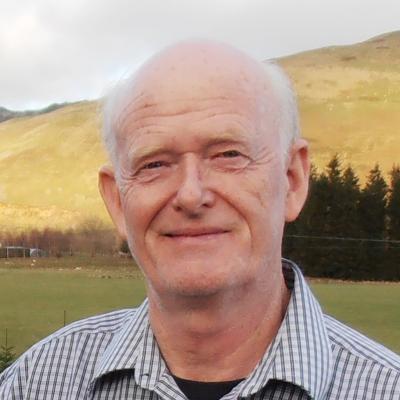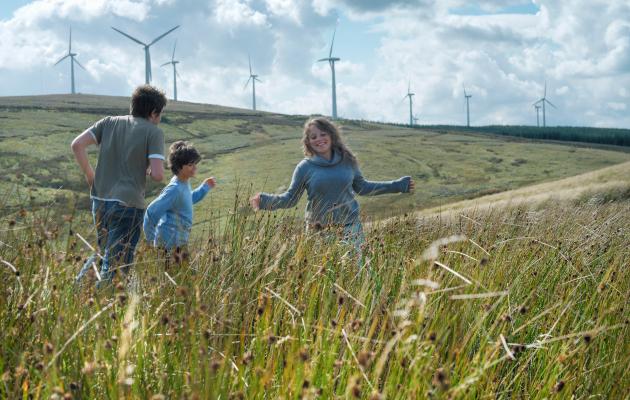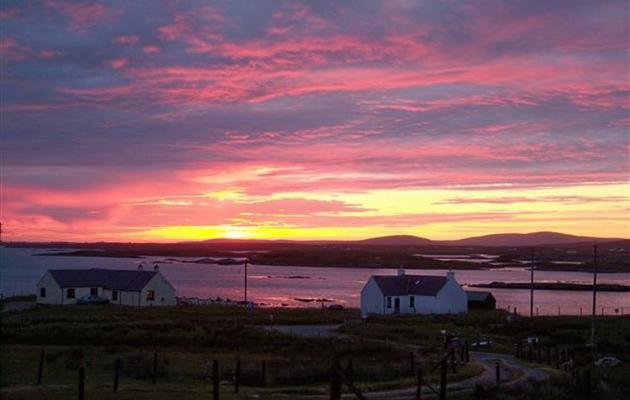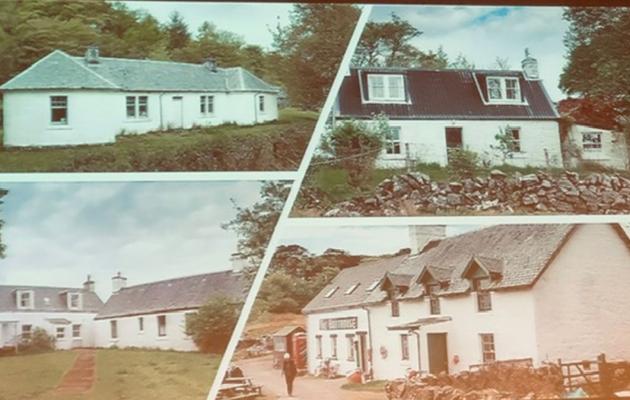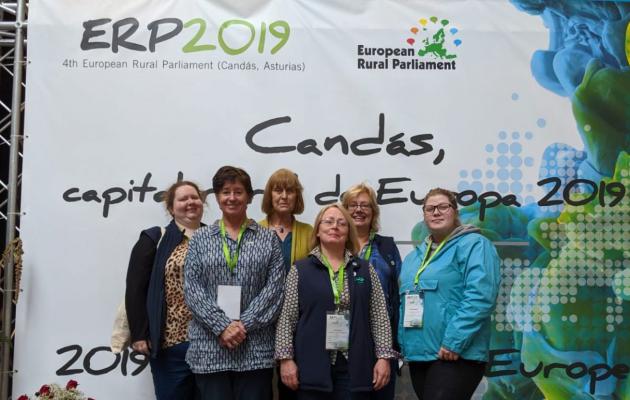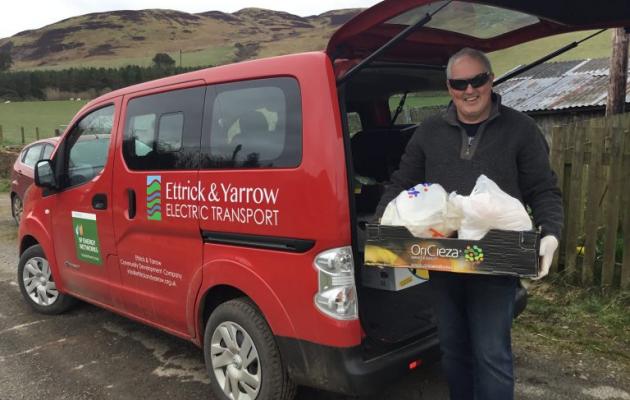
One of our volunteers delivering to a remote valley resident
A weekly delivery system has been established. However, the system to collect orders and arrange for payment proved a bit of a problem initially. The butcher decided to take telephone orders. He initially offered payment by bank transfer, but quickly made arrangements to be able to take credit card payments as well. The Bakers had never delivered before, but made an overnight decision to do so and offer a standard ‘lockdown pack’ to which people could add extra items. Payment to the Baker could be by bank transfer or cash (which is collected by the Baker when delivering the following weeks orders). The Greengrocer was so busy that our secretary offered to take the orders on his behalf, incorporating a security reference number into the system to combat any potential scamming activity
As it transpired the Selkirk fruit and veg shop could not cope with the 80+ orders received in the first week so the owner of a local inn which had closed due to the Covid restrictions contacted their supplier who was delighted to take orders for boxes of set quantities; the money was collected by the Innkeeper and passed on to the supplier. Deliveries to our hubs was done by the Innkeeper.
We then set about sorting out milk supplies. One of our villages is supplied by a local resident who works in a cash and carry, while the remainder of that valley can access fresh milk at a caravan park shop, which has remained open. A milkman was approached to consider delivering milk to households in the other valley.
Prescriptions and medicines proved to be another problem. There are two chemists in Selkirk and both of them offered a delivery service, but not to the upper reaches of both the Ettrick and Yarrow valleys. However, they both agreed to post prescriptions where possible, but cannot do this for controlled drugs or fridge items, and have now extended their deliveries further up the valleys.
Having sorted out food and medication supplies, we then turned our attention to combatting isolation and promoting mental well-being. An individual who normally runs a monthly pub quiz is now running a weekly quiz using ‘Zoom’. One of the positive spin offs of the Covid crisis has been that people have learned to video conference using WhatsApp and other methods, so people from four different households can form a digi team and take part in the weekly quiz. A local family of talented musicians have held an afternoon open-air concert and ceilidh in one of our villages. Their excellent sound system, and helpful location at the top of the hill meant that the whole village could enjoy this – even doing ceilidh dances in a socially isolated way, as you can see below!
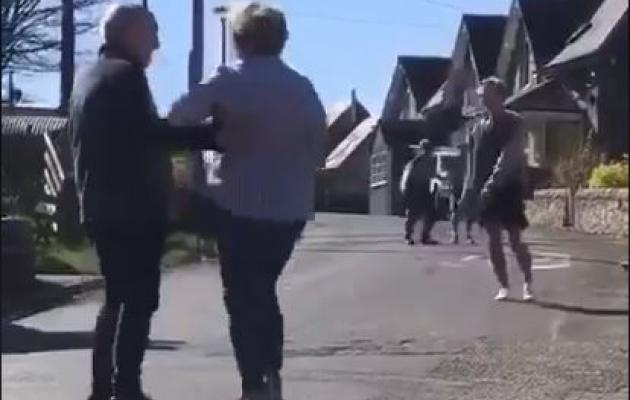
Socially isolated ceilidh dancing
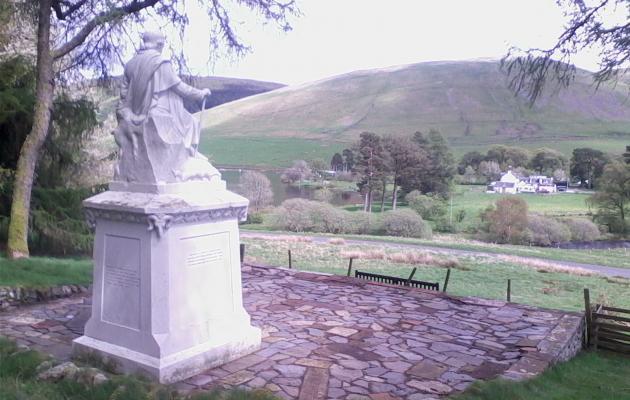
The statue of James Hogg overlooking Tibbie Shiels Inn
An article detailing what we had done to ensure adequate supplies and who to contact was placed in our local church magazine, Key Notes, which is normally put through every door. However, due to the coronavirus situation an electronic version was distributed via our local and CC email lists. Knowing that we could not cover every household this way we asked neighbours to ensure a copy was printed and delivered to those “off grid”.
Our valleys are also “served” by two Facebook pages; the Ettrick Yarrow Valleys is the prime page and contains posts of news and events that will never be removed, and the Ettrick and Yarrow Valleys page is used for social chit chat but all items posted on the prime page are copied to the chit chat page. The beauty of this system, which was set up about 8 years ago, is that we can always find anything recent as it will not “fall off” the page. We copied everything we had organised on our Facebook pages in addition to it being posted via our email lists.
As regards funding, we made it quite clear at the outset that all volunteers will not be out of pocket by helping the community. In that respect we knew the CC had some reserve funds because we had a small sum given to us by the Scottish Borders Council to cover our running costs, but we also had an additional sum from the local wind farm community benefit. This will cover all mileage costs, costs associated with the shopping delivery ordering and safe collection systems and the cost of charging up the community electric vehicle. In addition to this the SBC granted every CC with £1,000 initially and promised more if needs be.
In summary I list below some of the things that we did:
- Establish which household is in need.
- Establish which household is “off grid”.
- Establish and distribute a list of local resilience co-ordinators contacts.
- Speak to key local suppliers to see if they could and would deliver to the valleys.
- Arrange a delivery system from the suppliers.
- Arrange an ordering and payment system.
- Arrange a pick-up and delivery system.
- Ensure volunteers have expenses paid for.
- Introduce activities to help combat social isolation.
- Ensure adequate funding.
I hope this gives you an inkling of what we did to help ensure the resilience of our community and perhaps provide you with some ideas for your community.
It would be good to hear what things you have done so please feel free to share your experiences.

